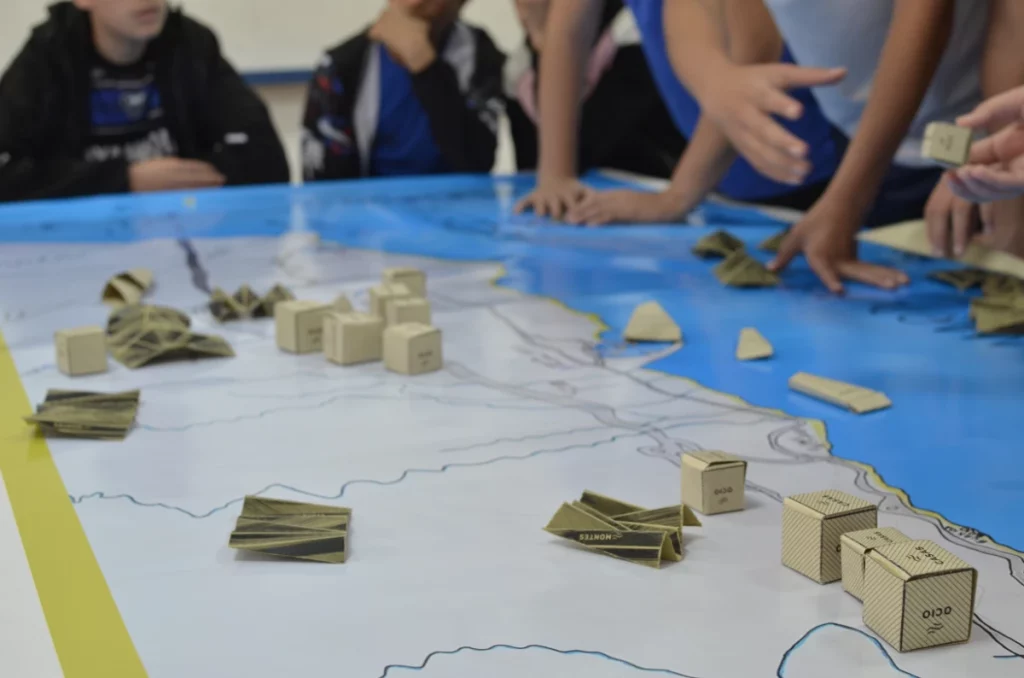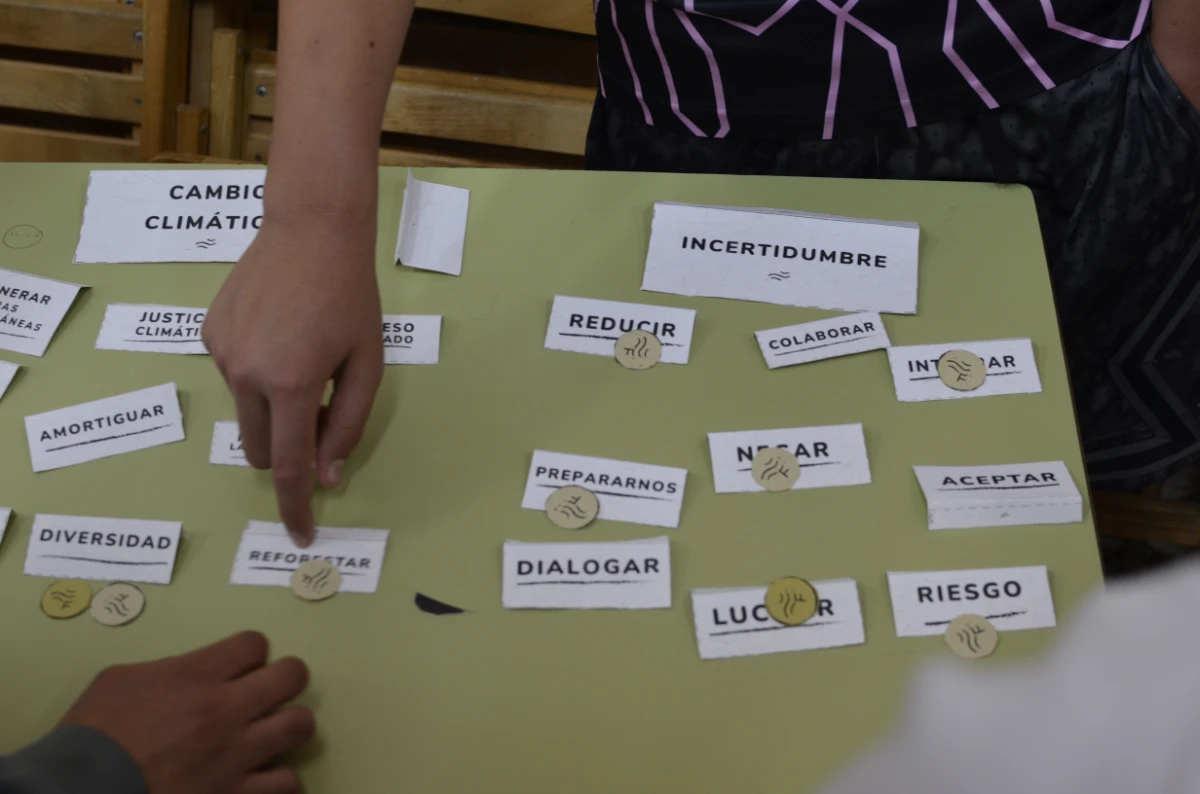Be.Time SCA designed the educational programme Playa Futura to explore the situation of our
region’s coastlines in our secondary schools.
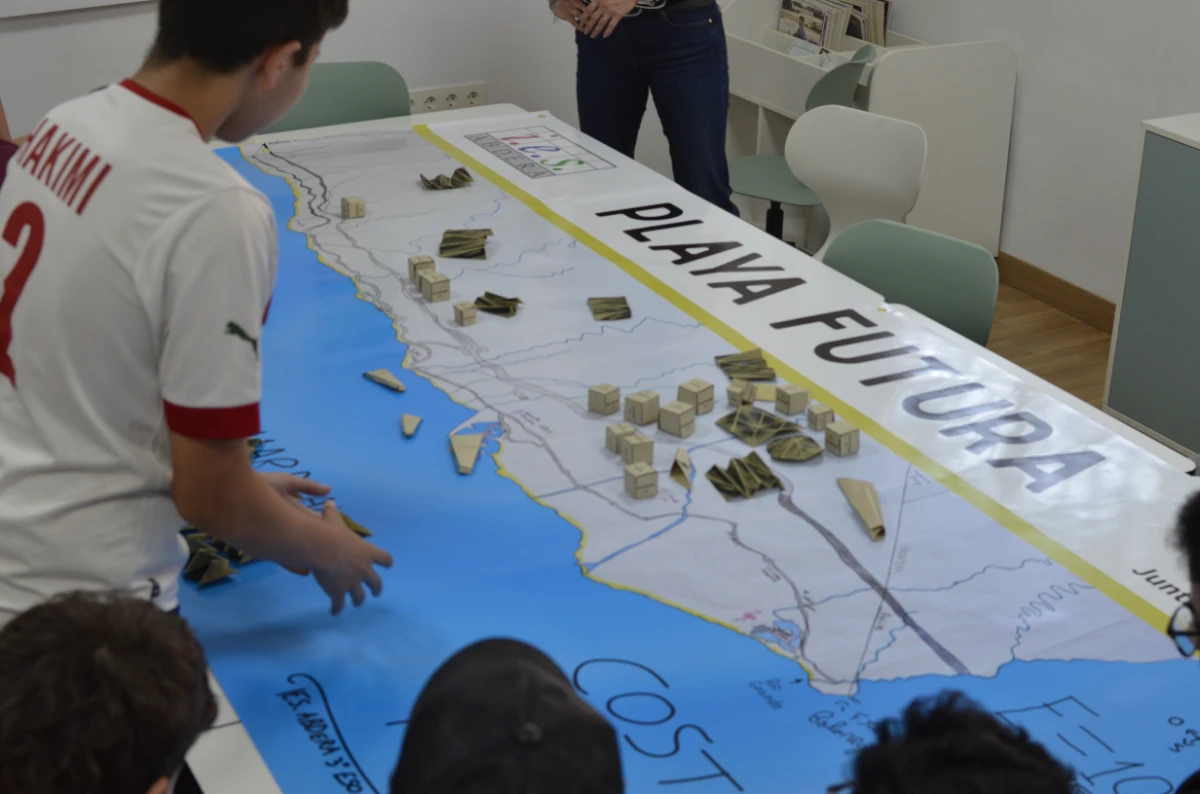
In the 2024-2025 school year, we collaborated with fifteen teachers from Andalusia and their students. Talking about climate change and rising sea levels provokes fear, indifference, and even outright rejection in most groups. We’re not always sure if we are prepared to face these issues ourselves, and it can be especially difficult when the conversation is with teenagers and young people, many of whom seem to have taken on the heavy burden of “fixing” the damaged planet they live on now and will continue to inhabit in the future.
Over the course of ten sessions, from January to May 2025, different learning experiences were suggested based on a model representing their territory, built using origami. After observing the current state of their local coast, the groups imagine a beach of the future, reflecting on how land management can be one of the most meaningful ways to respond to climate change responsibly and with foresight. What does it mean to retreat from the coast? In each location, we collected very different impressions and visions of the future.
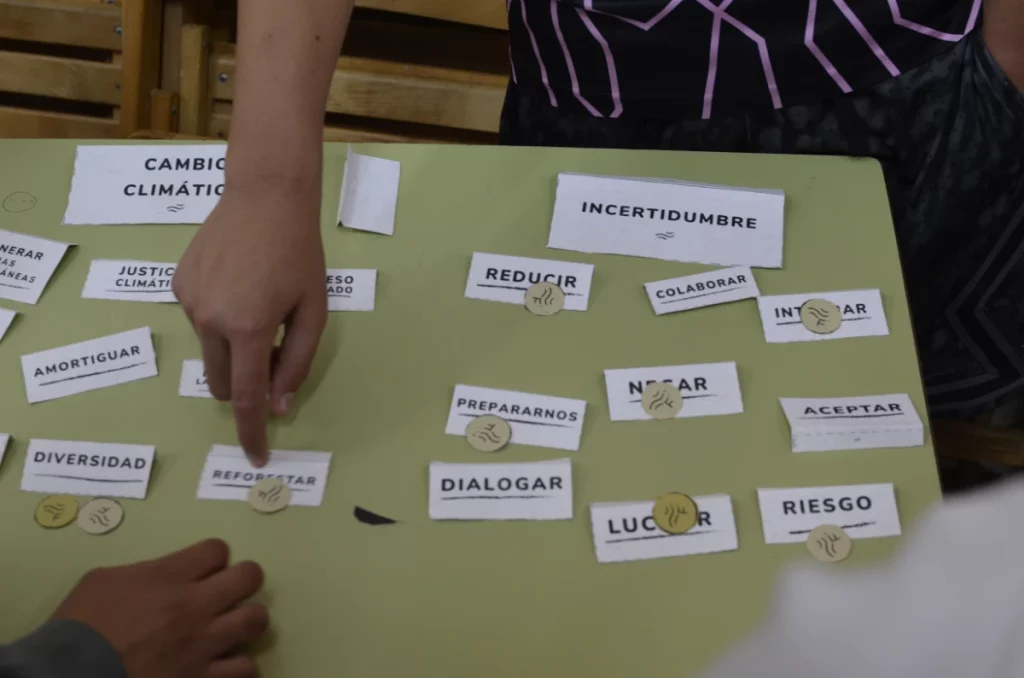
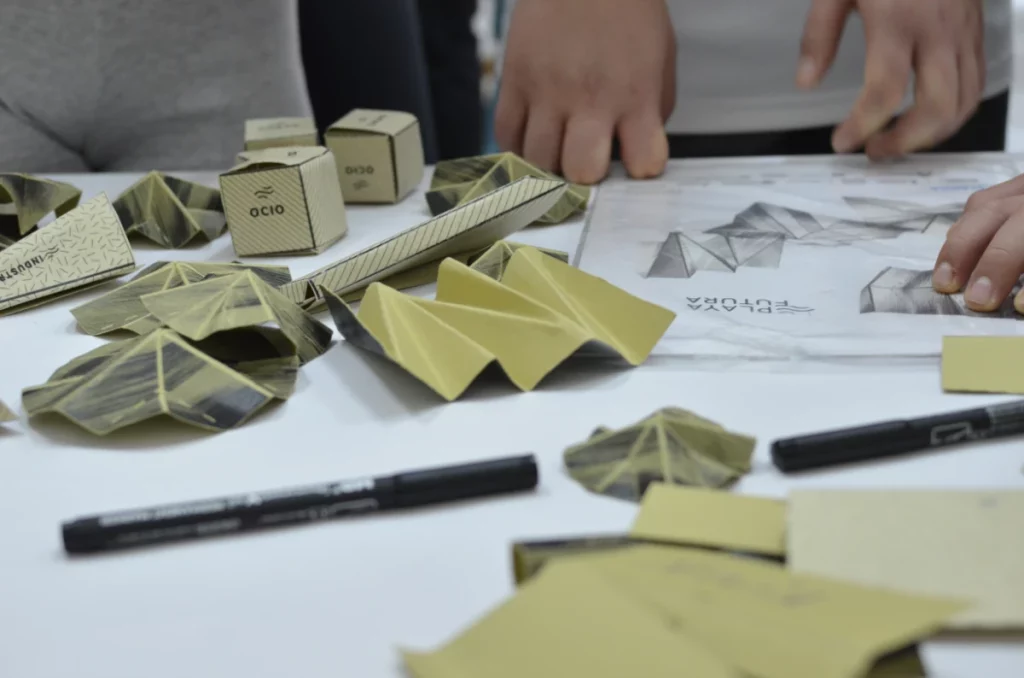
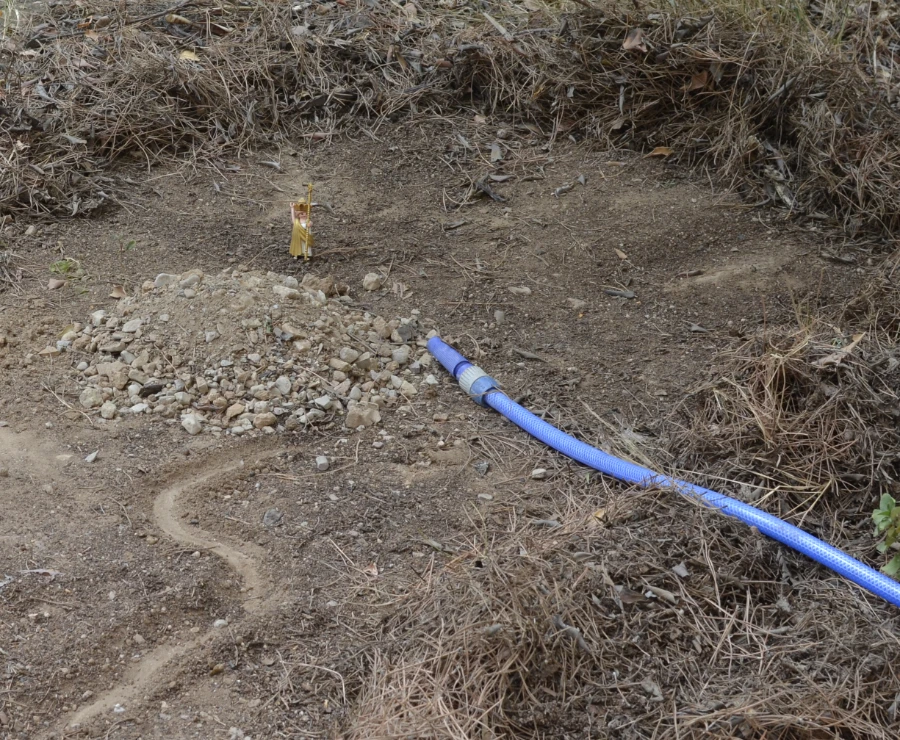
One of the visits that impacted us most this year took place in Almería. There, the groups participated in a final dramatization, which we recorded on video. Most of the students were children of Moroccan migrants who had settled in Almería a couple of decades ago to work in the greenhouses. They were asked to invent stories about climate refugees facing impossible situations in their territories. Yet none of the groups initially mentioned climate change or ecological problems as the causes of migration. Instead, they spoke of bombs, the deaths of mothers, violent attacks, and the experience of being different and forced to leave.
Playa Futura has shown that addressing climate change in schools is not only about reflecting on environmental challenges, but also about opening a space where lived experiences, family histories, and social realities come to the surface. By imagining future beaches, young people are not only building possible responses to the climate crisis but also giving voice to the wounds and hopes of the communities they belong to.
https://www.parpado.net/playa-futura/
https://redplanea.org/proyecto/playa-futura/
